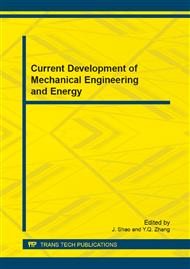p.1682
p.1687
p.1691
p.1695
p.1702
p.1706
p.1710
p.1715
p.1719
Intelligent PID Control and the Bifucation Behavior of Hydrogenerator Set
Abstract:
. Considering of the highly nonlinear, time-variable and complex dynamics and the easy variance of hydrogenerator set systems structure and parameters, a nonlinear dynamical model is presented, which can be analyzed by the bifurcation theory of nonlinear differential equations and simulated in computer. By using the genetic algorithm, the PID parameters of hydrogenerator set intelligent system are optimized and the control performances are improved. The algebra criterion about the existence of bifurcation is employed to study the bifurcation behavior of the nonlinear model which takes the PID parameters as the bifurcation ones. The simulations show that a supercritical bifurcation is likely to exist in hydrogenerator set system and the bifurcation will occur for the higher values of PID parameters. Theory and simulation results of this paper can be considered as good suggest for intelligent PID control system of hydrogenerator set system.
Info:
Periodical:
Pages:
1702-1705
Citation:
Online since:
February 2014
Authors:
Price:
Сopyright:
© 2014 Trans Tech Publications Ltd. All Rights Reserved
Share:
Citation:


